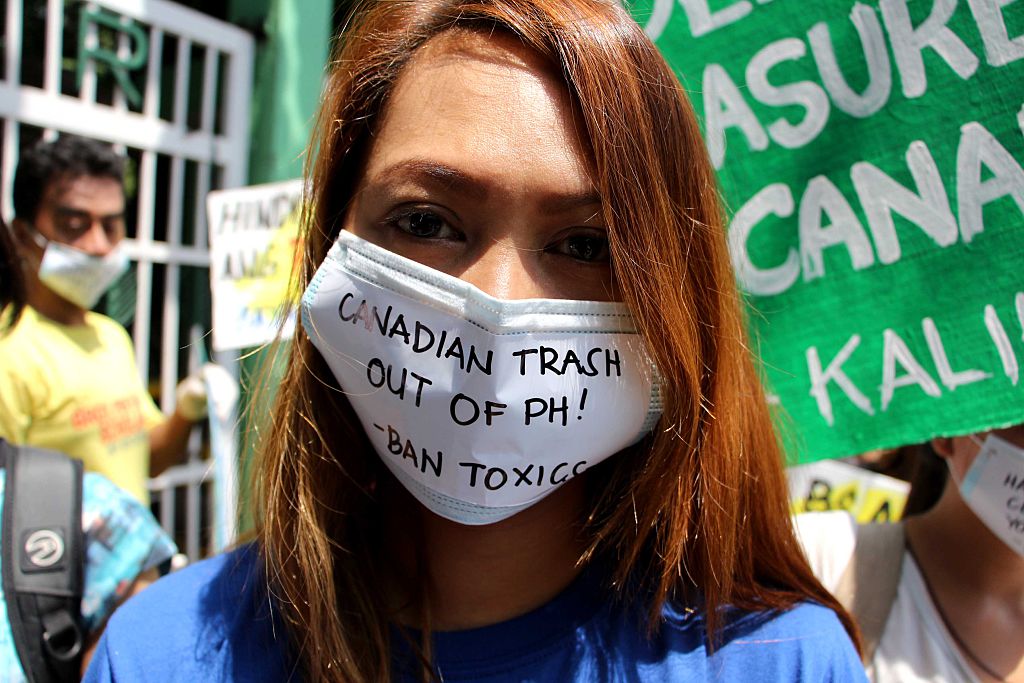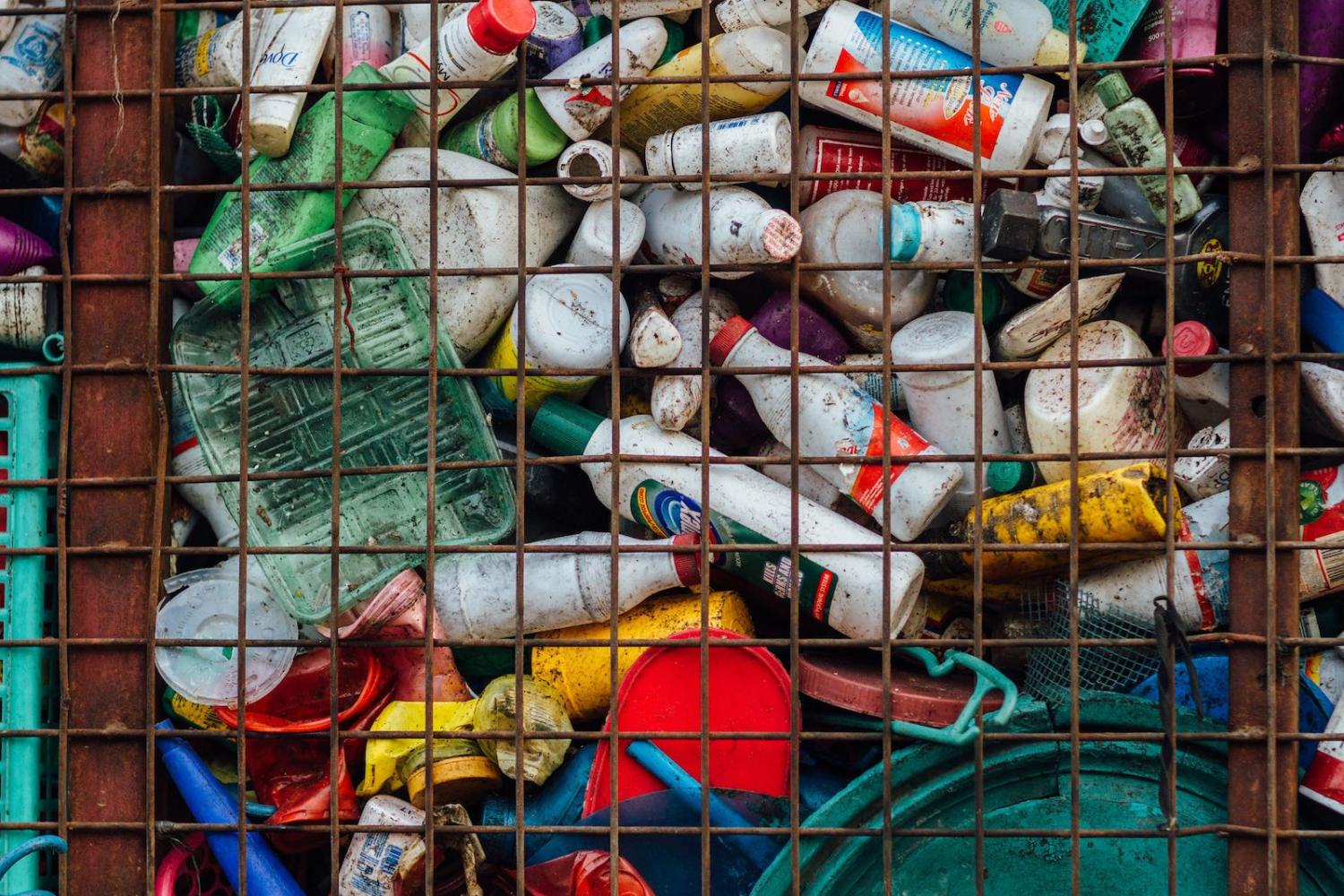Philippine President Rodrigo Duterte is notorious for exhibiting an unconventional diplomatic style and in recent weeks, ahead of local elections, he has picked a new foe. Duterte has been trash-talking the Canadian government – quite literally – insisting that containers of rubbish sent from Canada which have been sitting unwanted in Manila International Container Port and Subic Container Terminal for about five years be immediately returned to their country of origin.
“I want a boat prepared,” Duterte railed in an outburst picked up by international media, threatening the Canadian government that “they better pull that thing out or I will set sail to Canada and dump their garbage there”. Never one for understatement, Duterte went even further:
“Let’s fight Canada. I will declare war against them.”

The dispute stems from the actions of a Canadian firm, which sent over 100 containers to the Philippines in the years 2013-2014 that purported to contain recyclable plastic. Upon inspection, the containers were instead found to hold unsorted electrical and household garbage, including adult nappies and kitchen waste.
A legal process was initiated to get the containers removed, and in 2017 Canadian Prime Minister Justin Trudeau conceded that it was “now theoretically possible” for Canada to take the containers back. But he still denied official responsibility, stressing that “this was, at its origin, a commercial transaction. It did not involve government.”
The Philippines’ recycling industry has emerged alongside a history of illegal waste dumping by regional powers.
The Philippines’ recycling industry has emerged alongside a history of illegal waste dumping by regional powers. In December 1999, Japan took back 122 containers of hazardous trash only after they had spent five months idling in the country, with the Keizō Obuchi administration admitting full responsibility and holding the company which exported the waste accountable.
However, Tokyo was once again implicated in the waste issue with Manila during the ratification of the Japan-Philippines Economic Partnership Agreement (JPEPA) in 2008. JPEPA entailed zero tariffs for specific types of waste between the two countries, which previously held substantial tariffs according to World Trade Organisation’s Most Favored Nation (MFN) standards. This raised concerns that JPEPA would encourage the toxic waste trade and dumping – but these were partially dispelled because both Tokyo and Manila are members of the Basel Convention and have exchanged letters committing to follow both international and domestic laws to prevent such occurrences.
Environmentalists’ fears resurfaced again in 2018 when a South Korean company mislabelled and shipped approximately 6,500 tons of waste to the Mindanao International Container Terminal in Misamis Oriental. Around 1,400 tons of this waste was sent back in January 2019. While the issue has yet to be fully resolved, consultations between Seoul and Manila are underway for the return of the rest of the waste.

Public clamour against the mis-declared Canadian waste has been a recurring issue in the Philippines since 2013 and is often compared unfavourably to how Japan and South Korea have handled the return of their garbage. Duterte’s recent outburst was somewhat justified, in the eyes of many Filipinos, if only by Canada dragging its heels on resolving the issue.
No doubt Duterte’s intervention also came at an opportune time with looming midterm elections, aiming to present himself as a strong leader, defending the rights of the nation against a bigger country such as Canada by pushing Canadian officials into a sense of urgency. But beyond politicking, the issues raised are crucial, and not only for the Philippines.
For more than 25 years, a large percentage of the plastic waste of richer nations has been sent to poorer parts of the Asia-Pacific, with the majority of this ending up in China. But in 2018, Beijing banned imports of plastic waste, reflecting its growing status in the region. Containers of plastic waste were subsequently redirected to Southeast Asian nations, leading to a reported increase in imports in Indonesia, Vietnam and Malaysia.

Significantly, countries involved in recent high-profile waste disputes with the Philippines have not been the Asia-Pacific’s great powers, but instead come from a second tier of countries that have also sought to benefit from their substantial clout in the region. South Korea and Japan have been hailed as hubs with a progressive but industrial economy, yet waste management is a major issue confronting these countries.
As industrialised nations seek to reduce their own environmental footprint, they will doubtless seek to expand outsourcing of waste treatment to smaller powers that can be persuaded by the economic rewards on offer. Seeking to exploit their dominance over smaller powers, these countries at times appear unaware of local sensitivities towards importing waste in countries on the receiving end.
In the case of the Philippines, Duterte’s recent public shaming of the Canadian government appears likely to have paid electoral dividends. It also resulted in statement last month from the Canadian embassy in Manilla, pledging that Ottawa is “strongly committed to collaborating with the government of the Philippines to resolve this issue,” and claiming that “a joint technical working group, consisting of officials from both countries, is examining the full spectrum of issues related to the removal of the waste with a view to a timely resolution.”
However, with Canada failing to comply with a 15 May deadline to return the garbage and Canadian officials pulling a no show to a meeting with the Bureau of Customs, Philippine Foreign Secretary Teddy Locsin, Jr. went on to announce the country’s “diminished diplomatic presence” in Ottawa by recalling the Philippine Ambassador and other top level officials back to Manila.
Duterte’s denunciation of Canadian misbehaviour stands in notable contrast to his support for China’s acts of dominance in the West Philippine Sea and other areas of the Philippines’ domestic politics. Indeed, the Philippines’ willingness to contest garbage dumping over the last two decades suggests that leaders of small Asia Pacific powers may, in some circumstances, demonstrate a greater willingness to challenge hierarchical acts of dominance by the region’s second tier of countries than those of the great powers.

